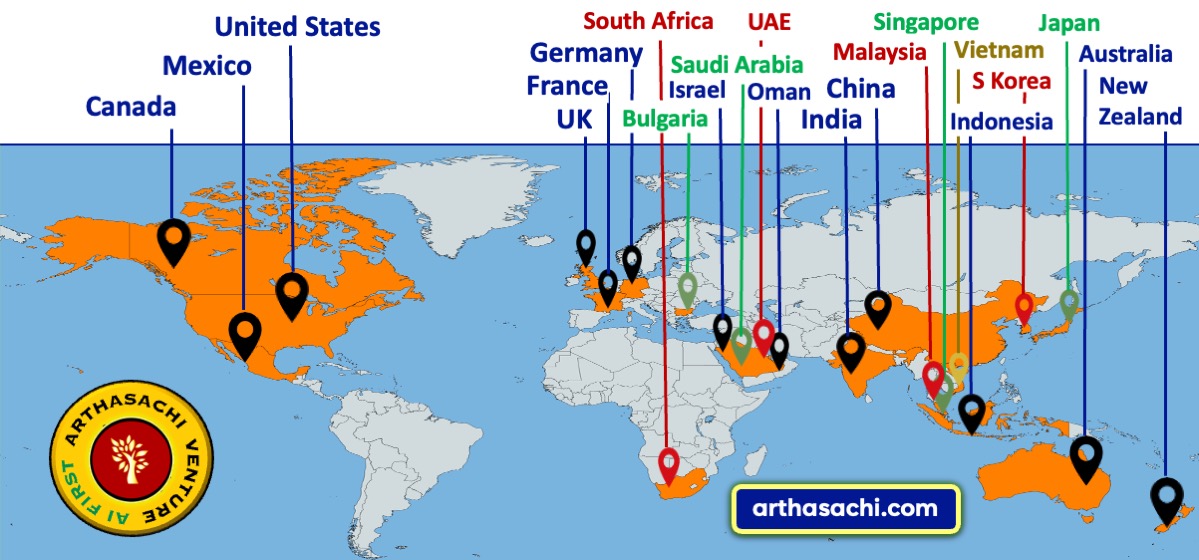
TOP 10 AI NEWS HIGHLIGHTS OF THE PAST FORTNIGHT
1. U.S. Relaxes AI Chip Restrictions: Nvidia to Resume Sales in China
In a significant turn, the U.S. government has lifted key restrictions, permitting Nvidia to resume sales of its H20 AI chips to China, reversing a ban imposed earlier this year due to national security concerns. This decision was reached as part of broader U.S.-China trade negotiations, which also included accords on rare-earth exports critical for both nations' tech industries. As a result, Nvidia is set to recommence shipments, with CEO Jensen Huang currently visiting China for dialogues with government and industry leaders on AI collaboration and compliance.
The resumption of sales, which also extends to certain newly designed, export-compliant chips like the RTX Pro, has been hailed as a “crucial and favorable advancement” for the company and for the Chinese tech sector’s access to advanced hardware. This move is expected to bolster Nvidia’s position in the Chinese market, which had suffered a significant revenue loss under the previous ban, and has already sparked a surge in orders from major Chinese firms. While aimed at balancing U.S. economic objectives with ongoing security oversight, the development also led to notable gains in tech stocks and a renewed sense of optimism in the global supply chain, as seen at major expos in Beijing.
Despite opposition from some U.S. lawmakers who caution about the military use of advanced chips, the current policy reflects a pragmatic recalibration of tech trade between the world’s two largest economies. Chinese leaders, meanwhile, continue to emphasize self-sufficiency, even as they welcome renewed access to Western technology. As both nations step up AI innovation and supply chain partnerships, this decision is expected to reshape the pace and nature of global AI progress going forward.
2. AWS Unveils Agentic AI for Enterprise Automation
Amazon showcased a new wave of “Agentic AI” tools at the AWS Summit, aimed at streamlining complex business operations. These advanced AI agents can autonomously handle intricate, multi-step tasks across diverse enterprise applications, adapting on the fly to changing circumstances. The objective is to minimize human intervention and operational overhead while ramping up business agility.
The new agentic AI capabilities allow companies to orchestrate workflows that span multiple systems, from procurement to customer service, using a single intelligent layer. AWS highlighted the benefits for sectors like logistics, finance, and manufacturing, where AI can now learn from operational data, adjust processes, and continuously improve outcomes.
With this release, Amazon positions itself at the vanguard of large-scale enterprise AI, pushing the boundaries of automation. Analysts see this as a substantial leap, marking a new era where business decision-making can be increasingly delegated to intelligent systems.
3. Google Launches “Big Sleep” AI Tool for Cybersecurity
Google introduced “Big Sleep,” a new AI model specifically designed to monitor and secure dormant web domains. Inactive domains are frequently hijacked for phishing attacks and malicious campaigns, posing risks to organizations and individuals.
Big Sleep uses advanced pattern recognition to analyze domain activity, flag suspicious behavior, and disable potentially compromised sites before threats materialize. The tool fits into Google’s broader strategy to deploy proactive, AI-powered defenses against large-scale digital abuse.
This innovation is seen as a timely response to evolving cybersecurity challenges, offering automated protection for vulnerable digital assets. Google’s continued investment in AI for safety underscores the technology’s role in combating sophisticated online threats.
4. Thinking Machines Raises $2 Billion, Fueling the Next Wave of Autonomous AI
Led by Mira Murati, former OpenAI executive, Thinking Machines secured $2 billion in funding, setting its valuation at $10 billion. The startup focuses on creating powerful autonomous AI agents tailored to complex enterprise decision-making.
With backing from venture capital heavyweight a16z, the company aims to advance AI beyond foundation models—developing systems that can operate independently in real-world business environments, making critical judgments with minimal oversight.
The scale of investment underlines growing confidence in specialized AI. Industry observers note this funding round as one of the largest in 2025, positioning Thinking Machines among the key players shaping the next generation of enterprise AI.
5. Trump Announces $92 Billion U.S. AI & Energy Initiative
President Trump announced a sweeping $92 billion investment package focused on bolstering domestic AI infrastructure, energy grids, and technology manufacturing. The initiative is intended to strengthen U.S. competitiveness, especially in the face of China’s advances.
Key components include tax breaks for AI startups, incentives for chip manufacturing, and significant funding for next-generation energy infrastructure to power AI development. The program also relies heavily on public-private collaboration and defense partnerships.
Supporters call it a game-changing government effort to secure the U.S. lead in AI. Critics, however, question the initiative’s long-term sustainability and how quickly it can deliver tangible results in a rapidly evolving field.
6. Academic Breakthroughs: Smarter Reasoning and Medical AI
At MIT, researchers announced new techniques to enhance the reasoning abilities of language models. Their approach involves decomposing problems into sequential sub-tasks, allowing AI to solve complex puzzles, optimize schedules, and even tackle theorem proving more effectively.
Meanwhile, MIT’s CSAIL introduced CellLENS, an AI for microscopic analysis, capable of identifying rare cell types and supporting breakthroughs in cancer immunotherapy. This system could pave the way for more precise, individualized treatments.
Additionally, MIT’s team developed AI-driven robots for materials science and energy-efficient underwater exploration, highlighting the revolution in how scientific discovery and data collection are now accelerated by AI collaboration.
7. Pentagon Awards $800 Million in Military AI Contracts
The U.S. Department of Defense opened the “military AI floodgates” by awarding contracts worth up to $800 million to tech giants including Google, OpenAI, Anthropic, and xAI. Each company will focus on developing next-gen AI capabilities with applications in intelligence, logistics, and autonomous systems.
The contracts reflect the Pentagon’s increasing reliance on advanced AI tools for national security, battlefield management, and predictive threat analysis. The partnerships also heighten competition among leading AI firms for lucrative government contracts.
Critics have raised concerns about ethics and transparency, especially in applying advanced AI to warfare. However, supporters argue the investment will anchor U.S. technological superiority in a new era of digital defense.
8. OpenAI Announces AI-Powered Web Browser
OpenAI revealed its plans to launch a new web browser integrating ChatGPT’s AI directly into the browsing experience. Unlike traditional browsers, this Chromium-based product lets users converse with AI for searching, research, and completing online tasks.
The new browser aims to disrupt Google’s Chrome dominance by offering real-time web understanding, automated research, and seamless information synthesis—all from conversational prompts. Early beta testers report that once immersed in an AI-enabled browsing experience, returning to conventional methods feels outdated.
This shift could reshape how users interact with the internet and influence the future of digital advertising, online commerce, and information retrieval.
9. Google Veo 3 and Indian AI Expansion
Google expanded its AI-powered video generation model, Veo 3, into India via the Gemini App, supporting local creators with tools to produce short, stunning videos from simple prompts. The rollout emphasizes Google’s commitment to democratizing AI media creation.
Veo 3 can generate eight-second videos with voiceovers, music, and realistic effects. It also features dual watermarking for copyright protection, reflecting growing awareness of responsible AI content creation.
This expansion, combined with Google’s efforts to localize AI for emerging markets, signals the growing influence of creative AI beyond North America and Europe—empowering creators and businesses globally.
10. Surge in AI-Focused Corporate Reorganization
Microsoft announced nearly 9,000 layoffs, with many sales roles being supplanted by AI engineering jobs. The company is merging its six solution areas into three new ones: AI Business Solutions, Cloud & AI Platforms, and Security, highlighting a dramatic internal pivot.
Microsoft’s strategy reflects the widespread corporate realization that AI literacy, not traditional sales skills, will drive future growth. The company is increasingly emphasizing technical demonstrations and customer enablement powered by AI.
This restructuring is representative of broader trends, as organizations worldwide reform their workforces to adapt to the AI revolution—prioritizing automation, technical proficiency, and rapid product innovation.
Top News
Other News
MARKETS
WEALTH
ECONOMICS
START UP
TECHNOLOGY
BUSINESS
Alliances and Partners

Arthasachi Venture Footprints

















